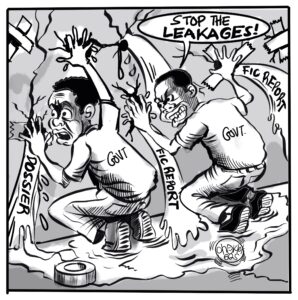NAREP president Elias Chipimo regrets accusing the Judicial Complaints Commission of undermining the Constitutional Court, adding that he made the remarks before understanding the details of the matter.
On Monday, Chipimo told News Diggers! that it was outside the mandate of the JCC to comment on the ruling of the ConCourt, regarding the interpretation of 14 days in the presidential election petition.
When reminded by the reporter that the JCC did not overrule the decision by the ConCourt but merely commented on the interpretation of 14 days, Chipimo, who is a respected Lusaka lawyer insisted that the JCC had no authority over the ConCourt.
“They can only make a comment about the ruling in so far as they are investigating whether there was competence in how that determination was made but they can’t pass a decision on something that is only within the mandate of the Constitutional Court to decide. They cannot turn around and say the ConCourt was wrong in its decision. All they can say is how did they arrive at that decision whether right or wrong. If they arrived at it in a wrong way through misconduct or incompetence, then they have a role to play but they can’t say that ‘they decided this, therefore they were wrong’ because the court is the final determinant on an issue, the Constitution is quite clear about that. The mandate is not given to the JCC, it is given to the Constitutional Court,” Chipimo said on Monday.
But yesterday when he featured on a Hot FM Radio programme, the NAREP leader apologised for making a hasty comment before reading the contents of the JCC ruling.
First of all, I must apologise to the JCC because yesterday I was asked by someone to comment on their ruling. And I made a comment without looking fully at the ruling that was made by JCC, which is very uncharacteristic of me. What I was relying on were some of the press statements that the JCC contradicted the ruling of the Constitutional Court,” Chipimo said.
“But actually, when you look at the full ruling of the actual decision, what you find is that the JCC did not contradict the Constitutional Court at all. In fact at all points they said there was no misconduct they said that there was a proper interpretation of the 14 days this is all within the ruling you can read it.”
He agreed with the JCC ruling that a single act of inconsistence could not amount to incompetence.
“In fact [on] page 40, it’s very very clear what they point out. The ruling says ‘we wish to state that one incidence of inconsistence cannot amount to incompetency let alone an act of gross misconduct so the alleged freak flocking by the respondent – meaning the court – did not amount to incompetent of gross misconduct by them’. Each of the grounds that were raised actually said this petition or this appeal to the JCC does not stand,” he said.
Chipimo however said although the Constitution considered weekends in the interpretation of 14 days in which to hear a presidential election petition, it was unfortunate that the ConCourt did not sit on Saturdays and Sundays.
“The issue that they raised however is that, and this is an issue which there could be a debate; they are saying that the 14 days was properly interpreted but there was a concern to them that the petitioners were denied 4 days. This was because including Saturday and Sunday within the 14 days, while it was correct under the constitution, the fact that the court did not actually sit on Saturdays and Sundays did in some way deprive the petitioners to have more time for the petition to be heard,” said Chipimo.
“However, they did not state that that amounted to misconduct. They were just saying that they should have offered themselves to say ‘we will also sit on these days because 14 days finishes on the 2nd of September’.”



















